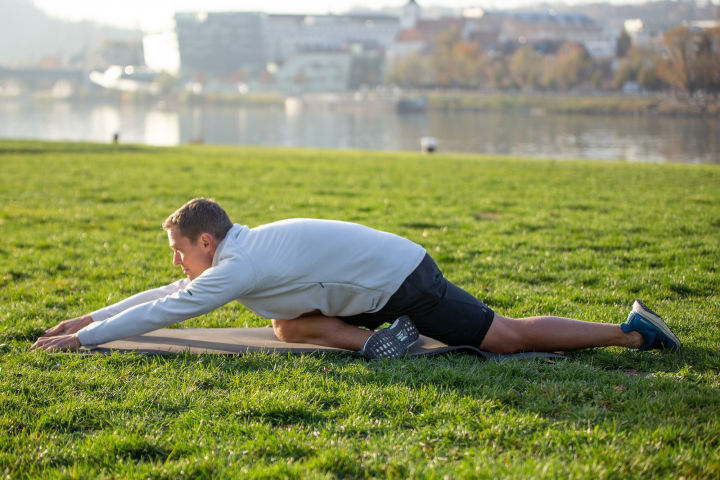What role does exercise play in bone density?

Exercise plays a crucial role in maintaining and improving bone density. Here's how exercise impacts bone density:
Mechanical Stress: When you engage in weight-bearing exercises or resistance training, the mechanical stress placed on the bones stimulates them to become stronger and denser. The stress and impact forces experienced during exercise activate the bone-building cells called osteoblasts, which promote the formation of new bone tissue. This process is known as bone remodeling. Over time, regular exercise helps increase bone density and improves bone strength.
Weight-Bearing Exercises: Weight-bearing exercises involve activities where you support your body weight against gravity, such as walking, jogging, dancing, and aerobics. These exercises place stress on the bones, which helps stimulate bone remodeling and increase bone density. Weight-bearing exercises are particularly effective in maintaining bone health and reducing the risk of osteoporosis.
Resistance Training: Resistance training, also known as strength training or weightlifting, involves exercises that work against an external resistance. By performing resistance exercises, you place stress on the muscles, tendons, and bones involved in the movement. This stress stimulates bone cells and triggers the remodeling process, leading to increased bone density and strength. Resistance training can target specific muscle groups and help strengthen the bones associated with those muscles.
Impact and High-Intensity Exercises: Impact exercises, such as jumping, hopping, and plyometric exercises, involve rapid and forceful movements that generate high-impact forces through the bones. These activities are particularly effective in stimulating bone formation and improving bone density. High-intensity exercises, like high-intensity interval training (HIIT) or sprinting, also contribute to bone health by subjecting the bones to significant stress and promoting bone remodeling.
Variety and Progressive Overload: Incorporating a variety of exercises and gradually increasing the intensity or load of your workouts can further stimulate bone remodeling and improve bone density. By challenging the bones in different ways, such as through different types of exercises or increasing the resistance, you encourage the body to adapt and strengthen the bones accordingly.
Weight Maintenance: Regular exercise, combined with a healthy diet, can help maintain a healthy body weight. Maintaining a healthy weight is beneficial for bone health, as excessive weight or obesity can increase the stress on the bones and potentially impact bone density. By engaging in regular exercise and adopting a balanced diet, you can support weight management and promote optimal bone health.
It's important to note that the type, duration, and intensity of exercise should be tailored to individual capabilities and needs. It's advisable to consult with a healthcare professional or a certified exercise specialist to develop an exercise plan that suits your specific circumstances and goals. They can provide guidance on appropriate exercises, proper technique, and progression to ensure the optimal benefits for bone health.
Please indicate the address of this article for reprint https://www.sportshealthprogram.com/Sports-Health/202306469.html





















